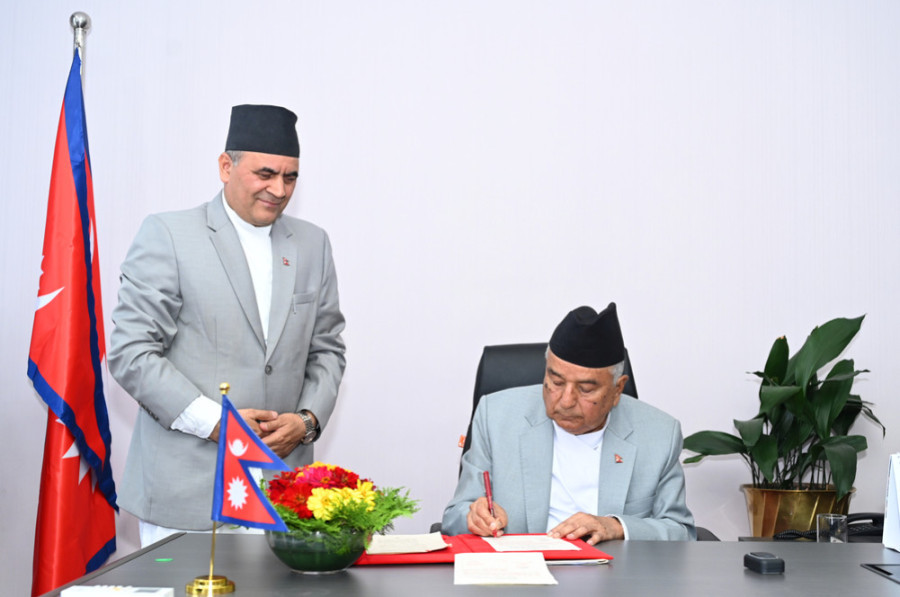Editorial
After the ordinance
The new ordinance on registration of new voters is only the first step towards timely elections.
On Wednesday, President Ramchandra Paudel, on the recommendation of the interim government, issued an ordinance to amend the election laws enabling new voters to register for the upcoming snap polls. By issuing the ordinance, the government has avoided a grave democratic deficit as tens of thousands of new voters poised to cast their first ballot would otherwise have been disenfranchised. As any democracy’s legitimacy lies in inclusion, an election that leaves out new voices is a meaningless ritual. By enabling new voters to register, the government has reaffirmed the social contract, breathing life into representative democracy. Therefore, the ordinance must be welcomed.
By issuing the ordinance, the caretaker government has shown responsiveness to public demand. Now, it must show speed. Expediency in the electoral process is of essence. As former chief election commissioner Neel Kantha Uprety said in an interview with the post this week, the Election Commission (EC) will not be able to hold the polls at the current pace of preparations. Acting chief election commissioner Ram Prasad Bhandari has said that voter registration will be open for a month. Currently, each day of delay in operationalising the voter registration eats into the already narrow window for logistical preparedness.
The destruction of over 450 police posts and several key governmental offices across the country in the riots of September 9 is a sobering reminder of the current reality. Security is a big component in conducting free and fair elections. But security concerns, though real, cannot be used as a reason to postpone the polls. The extended voter registration too must not be an alibi to delay elections. Such a delay in making way for an elected government could have all kinds of negative consequences, including a troubling state of political and constitutional vacuum.
With finance minister Rameshwor Khanal pledging to redirect budgets from dormant projects to the elections, the oft-cited excuse of resource crunch should not come in the way of timely elections this time. But putting together money for the polls is just one part of a much-bigger challenge. In this light, the new ordinance is definitely not the destination—only a doorway to elections. The true test lies ahead: It is up to the Election Commission, the government, and other stakeholders to ensure that the current state of political transition can be taken to its logical democratic conclusion.
Snap polls demand snap readiness. Mid-term elections, by their nature, are disruptive. They compress timelines and unsettle routines. But that must not be used as a reason for further delay. At stake is Nepal’s political fate. In times of political contestations, brought about by the Gen Z revolt in Nepal’s case, the ballot is the only peaceful adjudicator of who gets to rule on people’s behalf. To defer elections is to invite cynicism and anarchy; on the other hand, to hold it on time is to restore the public’s faith in democracy. By issuing the ordinance, the government has opened the legal door to include fresh voices in the elections. Now it must ensure that the voters can walk through it, ballot in hand, on March 5.




 20.9°C Kathmandu
20.9°C Kathmandu














